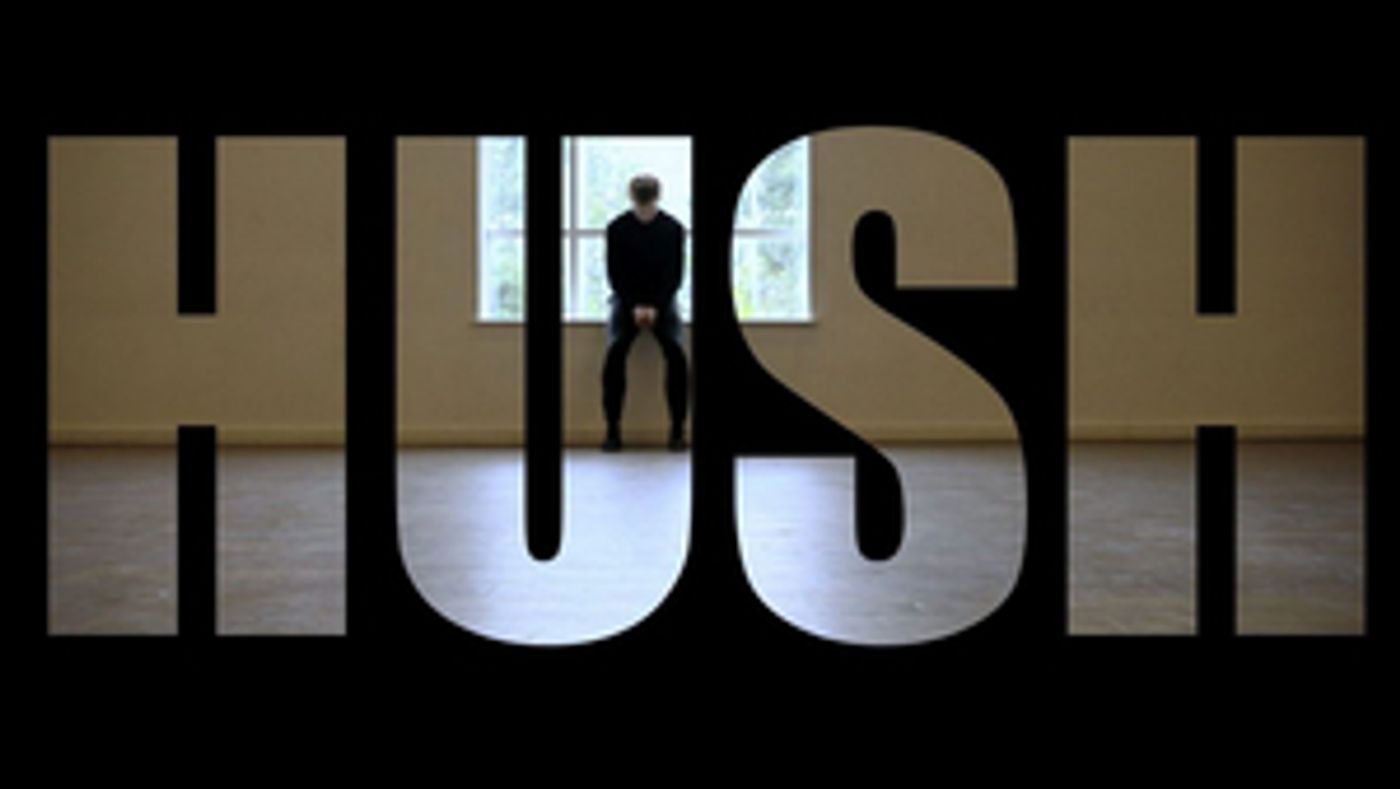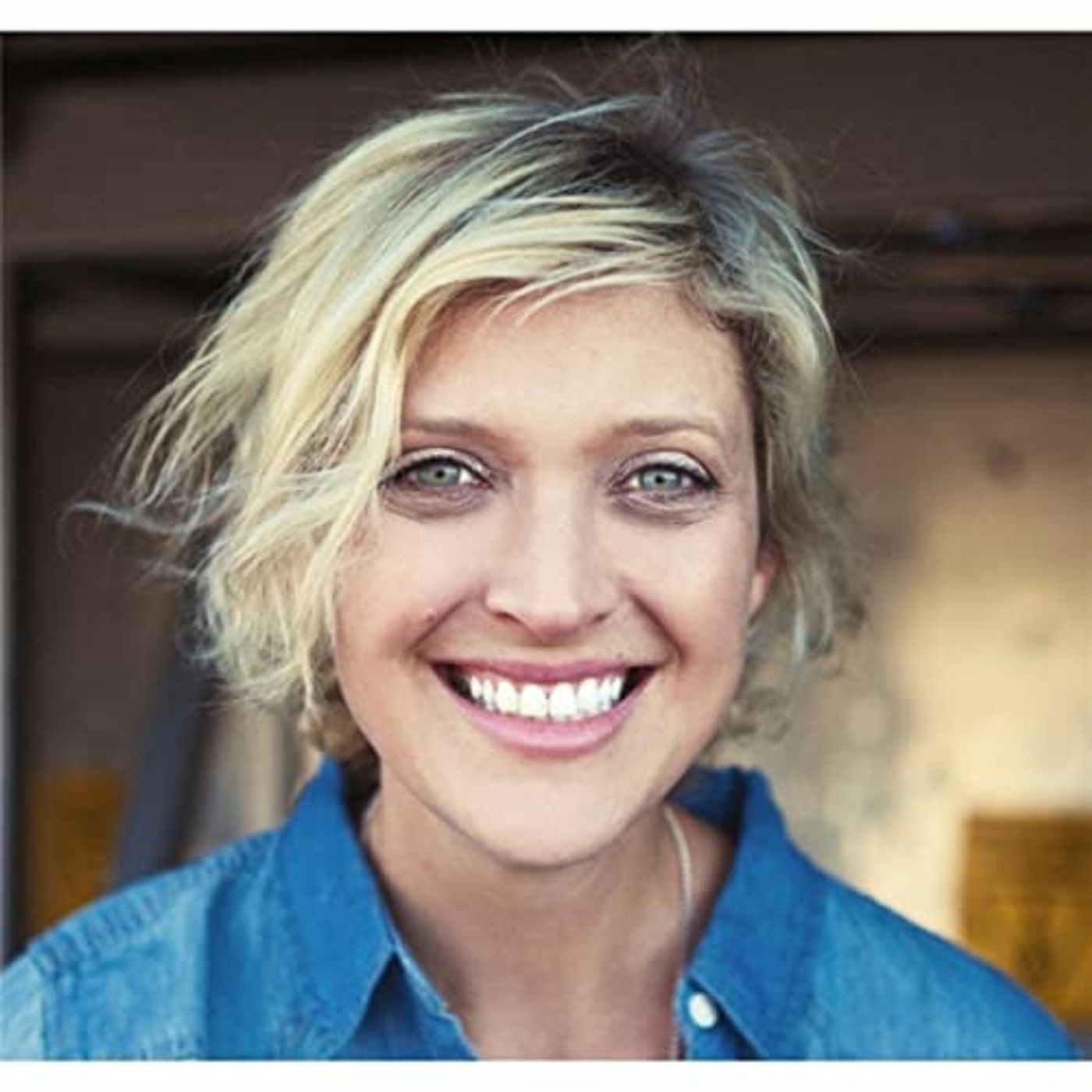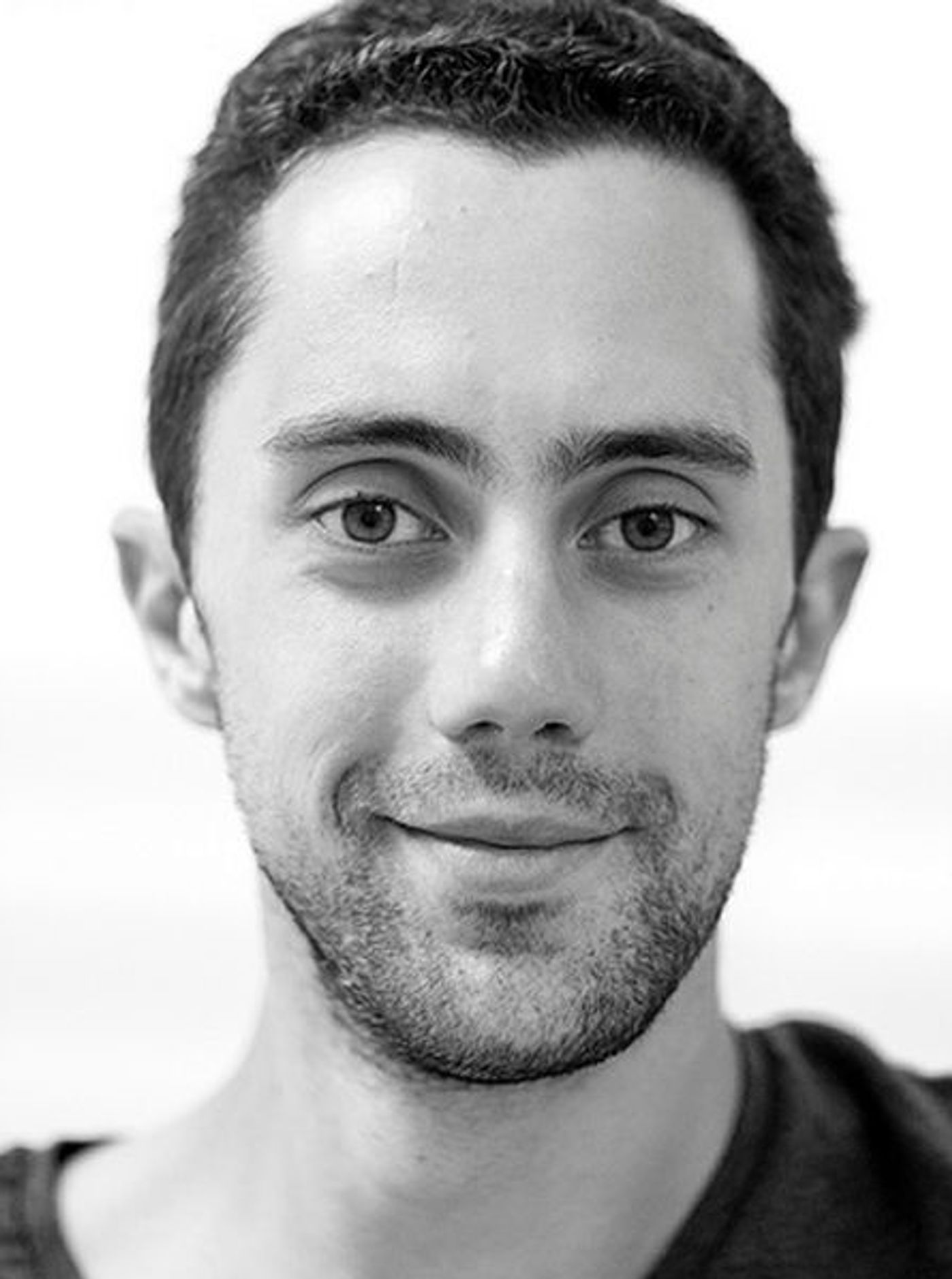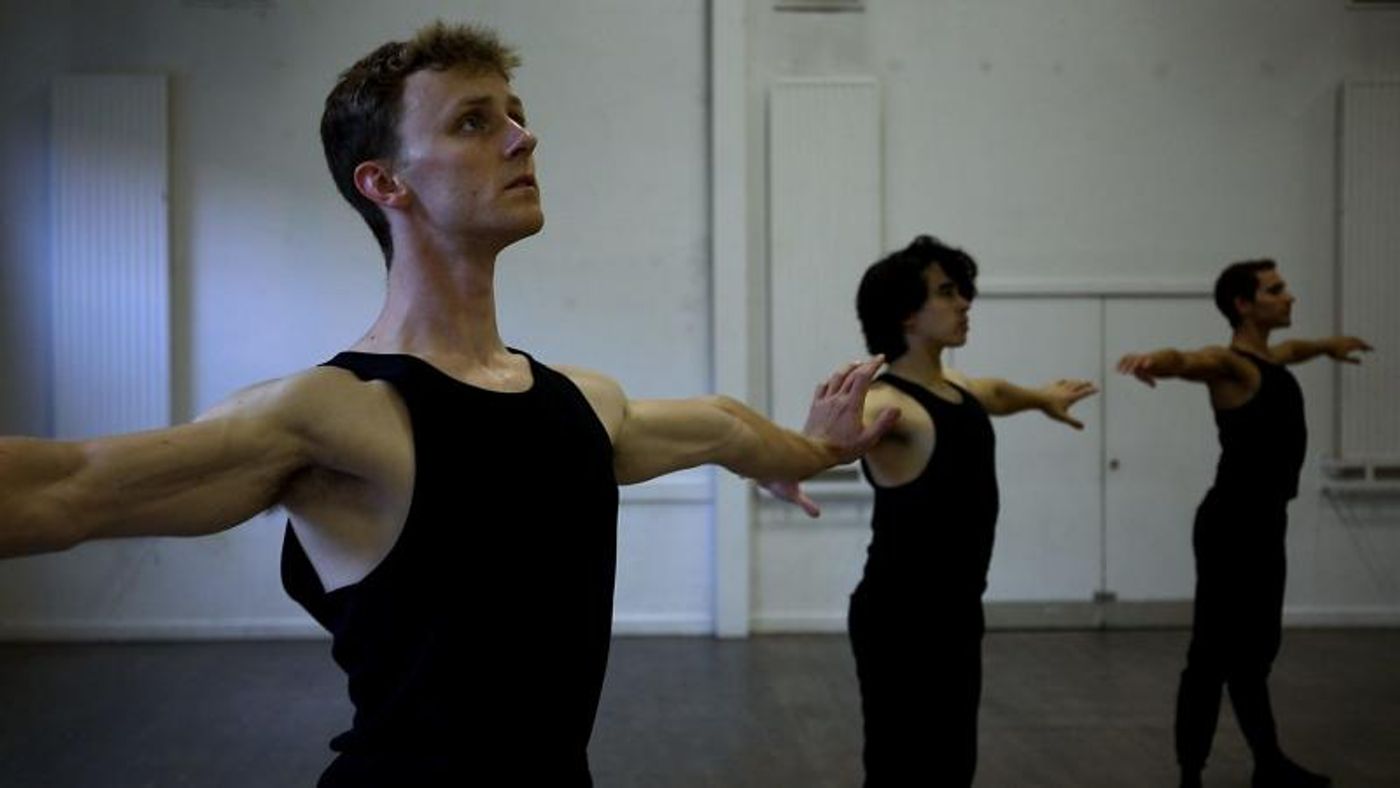Interview: Kath Haling and Erico Montes Discuss New Dance Film HUSH
The project unites West End and Royal Ballet talents, tackling mental health during the pandemic

Performers from West End theatre and the Royal Ballet united to create a new song and accompanying dance film, Hush. The piece aims to highlight mental health issues during the Coronavirus pandemic, and to raise awareness of the UK's incredible performing arts sector during a difficult time.
Hush was written by Kath Haling, with additional musical arrangement by Harry Haden-Brown, and vocals were provided by West End performer Leo Miles (Phantom of the Opera, Les Misérables). Choreographed by Erico Montes, former First Artist of the Royal Ballet, the film features dancers from the Royal Ballet including Benjamin Ella, Harry Churches and Giacomo Rovero, who perform together for the first time since lockdown began. We spoke to Kath and Erico about the project.
Could you tell us a bit about yourself and what inspired you to get into theatre?
Kath: I've always been a songwriter. I was working within the pop world, but I always loved musicals, film and stage. I decided that rather than just telling stories, like I usually do through pop music, I wanted to experience it on a larger scale. So, I started writing and I took it from there.
Erico: I started ballet when I was 11: my sister was taking dance lessons, and when I saw her performing, I asked to join. I just fell in love with it. I carried on training in Brazil, then I was given a scholarship to go to England and train in London. One thing led to another and I joined the Royal Ballet. Right from a young age, ballet was the thing for me.
How did you get the idea for Hush?
Kath: Basically, I was out to dinner with some friends, and we were talking about how creative this whole time has been, if challenging. I said that it had been like a lifeline to be able to still create even though theatres were closed. It was great to stretch out our creative muscles. It also came at a time when I was feeling quite overwhelmed. People were getting anxious and aggressive about the news, about masks, and distancing.
It all felt like a lot, so I decided to write a song and find some peace. I talked to my friends about it and we decided to create this project that went across the ballet world, plus using vocals from one of my friends who's in Les Misérables. It all flowed together, because we were all very eager to work and create something. And do it for our own mental health.
Erico: It was exactly that. We all really wanted to do what we do. When this opportunity of work appeared, I said yes straightaway. It was something to do, new people to meet and collaborate with.
What do you want people to get out of this?
Kath: Personally, I want people to understand that it's OK to say that you're not OK. This year has been very challenging, and on a mental health level, it's the monotony, the uncertainty, the news. I just wanted people to realise that it's OK to talk about it. And also, to find some sort of peace: sit quietly, breathe, shut down the world just for a little bit to get through the next day. We're all in this together.
Erico: When I heard the song and I asked Kath about her inspiration and motivation behind the lyrics, it really resonated with me. I realised how similar we were and how we were all going through the same things. It just shows that you can find peace, and I think for us, the way we find peace is by doing what we love. By dancing, writing or whatever - just doing what you love is what gets you thought in difficult times. Even though everything is hard right now, we need to stay positive and know that we are going to come back. We're going to be doing what we love again and keep bringing joy to the world.

How do you feel about how the arts industry has been treated during this pandemic?
Kath: Being within the theatre industry, I felt a little bit kept in the dark. I went from a year where things were happening and moving to all being shut down. I felt this sort of empty silence from above. Where's our help? I'm sure many industries feel that though.
Erico: For all of us, it was incredibly disappointing to have everything cancelled. I had made the decision to end my career as a dancer at the Royal Ballet and the shows just stopped. I was preparing myself to have a run of Swan Lake performances, which would have been my last as a dancer, and the shows got cancelled. I was robbed of this opportunity to just slowly come to terms with what was happening. It was a shock.
I think in England, they have done some good things that kept us going, helping a bit. But the Government and the people who run this country have little understanding of what we do. I just hope they will realise that they need people who represent all the different industries so they have an understanding of what it takes, to be able to help us and tell how to keep going safely.
We were all doing our ballet classes at home and, of course, we couldn't jump, we couldn't turn, we couldn't move. And there might have been a way we could have been in a theatre, we could have been safely distanced, but there was nobody there, representing us. Even now, it's so important that we can get back to performing, but there is still limited understanding. It's too difficult for them to get through the details of how to put a show on. But it's important, so I hope it works out.
Kath: I definitely think that parameters within theatre can exist now. Theatres are able to explore that. The Southwark Playhouse is doing a great job with the glass between seats for The Last Five Years. Within certain boundaries, it can exist. There are things that can happen.
I watched the Royal Ballet's performance on Friday from my lounge and it was spectacular. It was great to see these wonderful dancers out there again, and the orchestra too, but we really miss the audience. I saw the show Contact last week - it was outdoors and it was really amazing. But I was so overwhelmed by watching a piece of theatre that I missed so dearly and so deeply. The people on stage, behind the scenes and the audience too, they are all so important, and we need to get everyone to experience theatre again.
Why do you think theatre is so important, especially at a time like this?
Kath: I think it gives a different level of connection. It's great to experience streaming theatre, and it's better than no theatre at all. I watched the Royal Ballet and I loved it, and I was in the comfort of my home, but what I would've have done to dress up and get into that building and experience it live! What I got to experience with Hush was being in the presence of a choreographer like Erico and the dancers we had. It's mesmerising. It's that connection, that feeling of being present, that just really lifts your spirit and touches you. It's like a live concert: it always going to be so much more powerful than the radio or streaming.
Erico: It's something you can't explain. If you've been in a theatre, watching performers on stage, you just know that feeling is unlike anything else you've experienced. We shouldn't even have to explain why it's important. When the orchestra starts playing and you feel the music vibrating inside your body, you just connect with it. It's not even about the performance - it's about the people. Theatre is the only opportunity where you can go somewhere else. For two hours, you can forget everything - you are in a different place, experiencing a different story.

Kath: My friend saw Songs from a New World at the Palladium, and he told me that as soon as the first notes started, he just started to cry - because he missed it so much. It took over his body in such a wonderful way. Being in a theatre, experiencing the magic, it's just incredible.
Is there any particular reason you wanted to tackle the topic of mental health?
Kath: When I sat down to write this song, I was very aware that I had been struggling throughout the previous months with my mental health. Everyone I know has, been because we'd been in such unique, challenging conditions, and I know how important it is to talk about it. I felt like this was a conversation that should be constantly open - no stigma attached. It's so important, especially now. People have suffered extreme challenges with mental health, and some have not survived it, so it's essential that people are talking about it.
Erico: I agree. Mental health issues are so much broader than we know. It's beyond severe depression or suicidal thoughts; to some extent, we're all dealing with it. And now we're also worried about this health issue, which is the virus. If you're not mentally healthy, if you're not able to cope with your personal experiences, you start to wonder what is the point of staying alive? I think it needs to be talked about, so people can really understand.
Kath: This year, no one has escaped any form of mental health issues. Even if it's the simple monotony of lockdown, or the anxiety that there is a real illness out there. No one escaped it. Some people never really thought about it, and this year, they've experienced it and are not able to deal with it.
This is a conversation we need to have in every aspect of our lives, and especially in theatre. How do you think the arts can help people dealing with mental health issues?
Erico: Some people go to therapy and talk. Some people are too shy to go to therapy. For those people, going to the theatre and watching a performance, that is therapy. Theatre is almost the most accessible type of therapy. Not accessible in the way it's affordable - some shows can be very expensive - but that you don't need to talk. You can go to the theatre and not say a word. But you don't feel alone. You're sharing that experience with people you don't know. That feeling of connectedness that some people don't have in their life, it can be therapy.

Harry Churches and Giacomo Rovero
Finally, what have you enjoyed the most by creating this project?
Kath: For me, it was the experience of working alongside Erico and my friend Leo [Miles] and our three dancers - Benjamin Ella, Harry Churches and Giacomo Rovero. It was such a unique and fulfilling experience for me as a composer, to have someone move like that in my piece, especially after this year. All disciplines coming together and it all just flowed perfectly. It was what the piece was always meant to be. It was pure joy.
Erico: We made the whole film from beginning to end in four days. We couldn't have wished for anything to have gone better. It was just amazing to be back with my friends and the dancers - to create something together and show off their talents.
On the first day, I came up with some choreography. Kath came the second day and I told her to tell me if something doesn't make sense, if the movements tell the story she wanted to tell, and she said that she understood everything and it was exactly what she wanted to express. That was the greatest compliment. As a choreographer, you're putting your own interpretation on the music, but when you have the composer say that it's what they have in mind, that is the best feeling ever. It's what we all aim to achieve.
It came together perfectly. We had a great time. It had a beneficial effect on our own mental health, because we experienced four days of absolute joy.
Do you have anything else to add?
Kath: I hope everyone enjoys it. It helped us all.
Erico: We have tagged this great organisation: Acting for Others. If you want to watch the film and make a donation, it's a charity that helps other charities and helps people in the theatre world. So, if, on top of having had the most amazing experiences for ourselves, we could help other people, that would be incredible.
Kath: When I said that sometimes I felt left in the dark, being in the theatre this year, it was Acting for Others, and the charities they work with, that made me feel like I haven't been forgotten. They provided aid when I needed it. It's a legitimate and helpful organisation. They've really been there for the theatre community.
Videos


